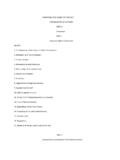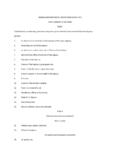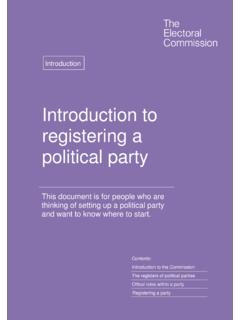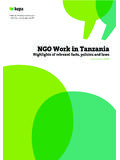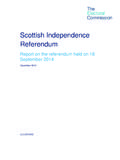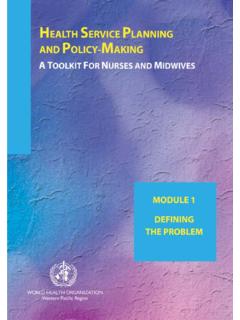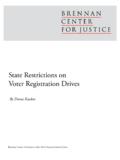Transcription of ELECTORAL ACT 2010 SIMPLIFIED - PLAC | Promoting Good ...
1 11 ELECTORAL ACT 2010 SIMPLIFIED PLAC 2015 All rights reserved under International Copyright Conventions. No part of this publication may be reproduced, stored in a retrieval system or transmitted in any form or by any means, electronic, mechanical, photocopying, recording or otherwise without the prior written permission of the Provisions of the Act About INEC Voters and Voter RegistrationPolitical PartiesElection ProcedureElection PetitionsElectoral OffencesAppendixElectoral Act 20101357111928313539 Table OF cOnTenTs1 The ELECTORAL acT SIMPlIFIeD11 InTRODUcTIOnA lot of times, the average citizen is unable to speak or articulate in clear language or factually, the actual contents or details of the law or issues governing elections in Nigeria.
2 This lack of understanding sometimes affects the manner in which the average citizen participates in the ELECTORAL process in this book, relevant portions of the ELECTORAL Act 2010 have been reproduced and explained to achieve better understanding of its contents. Thus the aim is to aggregate into simple and accessible language and in one volume, the ELECTORAL Act so that the ordinary citizen is educated on Election Matters. It also aims to create awareness among citizens on all of the issues and laws governing elections to enable them to participate in elections in a well-informed ELECTORAL acT SIMPlIFIeD33 ABOUT THE ACTThe ELECTORAL Act, 2010 was passed by the National Assembly on 29 July 2010 and signed into law by President Goodluck Jonathan on 20 August 2010 .
3 The law provides the basic legal framework for regulating the conduct of Federal, State and Area Council Elections in are two amendments to the 2010 ELECTORAL Act: The first amendment, the ELECTORAL (Amendment) Act 2010 , provides for adequate time for the Independent National ELECTORAL Commission (INEC) to issue notices, receive nomination of candidates from political parties and ensure the proper conduct of political parties. The second amendment, ELECTORAL (Amendment) Act ( ), 2011, contains only one amendment aimed at abridging the time within which INEC shall stop the registration of voters before any general election under the Act from 60 days to 30 ProvISIonS oF The acT The ELECTORAL acT SPellS ouT The FollowInG: The body responsible for conducting elections in Nigeria.
4 How elections are conducted and the method of voting. Conditions for voter eligibility. The legal requirements for being included on the voters register. Conditions under which an election may be delayed or postponed, and the actions to be taken to reschedule such election. Election offences and their penalties. Nominations criteria for candidates and political parties. Regulations for ELECTORAL campaigns. The process for counting of votes and declaring election results. Election Procedure for Area Councils. Mode of determination of Election Petitions arising from ELECTORAL acT SIMPlIFIeD55abouT InecThe I999 Constitution of the Federal Republic of Nigeria vests the power and authority to organize and conduct elections in the Independent National ELECTORAL Commission (INEC).
5 INEC is established under Section 153 of the Constitution. The ELECTORAL Act specifies the powers of INEC and describes how it will be organized to carry out its executive, administrative and financial business, as well as how it will be structured to administer the elections. Civic and Voter Education ~ Sections 2 and 154 Organising Elections Organising Referendum Political Party Regulation Constituency Delimitation Recruiting Staff Scheduling Elections Issuing Election Forms Sorting and Counting Ballots Cancelling Election Results Maintenance of the Voters Register-Section 9 Print and issue of voter s register ~Section 15 Print and issue of voters card ~Section 16 Issue of duplicate voters card ~Section 18 Registration and deregistration of Political Parties ~Section 78 Giving notice of elections ~Section 30 Establishment of Polling Units ~ Section 42 Prosecution of ELECTORAL Offences ~ Section 150 Powers & Functions of INEC
6 STrucTure oF InecElectoral Commissioners ~ Section 6 The INEC Chairman is the Chief ELECTORAL Commissioner INEC has 12 National Commissioners INEC has 37 Resident ELECTORAL Commissioners; one for each State of the Federation and one for the FCT There is an INEC office in in each State of the Federation and Federal Capital Territory headed by the Resident ELECTORAL Commissioner (REC) They perform such functions as may be assigned or delegated to them by the Commission. RECs hold office for a period of 5 yearsCriteria for Commissioners Eligibility ~ Section 6 For the Chief ELECTORAL officer the INEC Chairman must not be less than 50 years For other ELECTORAL Commissioners must not be less than forty years old The Chairman and Commissioners must be persons of unquestionable integrity6abouT InecSecretary & Other Staff Of The Commission ~ Section 8 The Secretary is head of the Commission s secretariat and is responsible for its administration.
7 He/she is responsible for the direction and control of all other employees of the Of The Commission ~Section 7 The Commission may delegate powers or responsibilities to any committee/s that it establishes Other Powers & Functions of the CommissionThe Commission may delegate any of its powers and functions to any National ELECTORAL Commissioner, Resident ELECTORAL Commissioner, ELECTORAL Officer or any officer under the provisions of this Act ~ Section 152 The Commission is vested with the power of issuing regulations, guidelines or manuals to give effect to the provisions of the Act ~ Section 153. It is also responsible for producing a Gazette containing the guidelines for the elections particularly on the step by step recording of the polls in the ELECTORAL forms beginning from the polling unit to the last collation centre where election results are announced ~ Section 73 The Commission may raise awareness of its functions through civic education, print and electronic media.
8 This is consistent with the mandate conferred on the Commission in Section 2(a) and (b) to carry out voter education ~ Section 154 Any defect or error on the part of an official of the Commission in relation to any notice, form or document issued to him or any act committed by him remains valid unless declared invalid by a competent Court or Tribunal ~ Section 155 The ELECTORAL acT SIMPlIFIeD77voTerS anD voTer reGISTraTIonVoter RegistrationPolitical participation through the right to vote is a fundamental right guaranteed in democratic governments. This means that eligible citizens have access to the political process through the exercise of the right to vote. Provisions on voter registration are covered under Sections 9-23, (Part III) of the ELECTORAL Act.
9 This process ensures that only eligible voters vote at elections. Qualification for Registration: Section 12 A person can only qualify to register as a voter if he/she is: A Nigerian citizen Have attained the age of 18 years Lives, works or originates from the Local Government Area Council or Ward covered by the Registration Centre Present him/herself to be registered Not subject to legal incapacity to vote under any law, rule or regulation in force in Nigeria. A person is not allowed to register in more than one registration center or register more than once in the same Registration Centre ~ Section 12 (2). However, a voter may ask for his name to be transferred to a voters list outside the constituency/area where he originally registered ~ Section 13.
10 A registration officer and an update officer can demand from any applicant any information he deems necessary to ascertain whether an applicant meets the qualification criteria of a voter ~Section 14(a) Voters are permitted to own only one voters card ~ Section 16(2) Voters and Political parties can request for a certified copy of the voters register in the State, Local Government, Area Council or any registration area within it, upon payment of specified fees/charges to the Commission ~ Section 15 The Commission is responsible for the design, print and issuance of voters cards to voters whose names appear in the register~ Section 16(1) An ELECTORAL Officer is responsible for the voters register for his Local Government Area ~ Section 17 The Commission has proprietary rights over issued voters cards ~ Section 228voTerS anD voTer reGISTraTIon The owner of a voter s card that is lost, destroyed, defaced, torn or otherwise damaged may apply in person no less than 30 days before polling day to the ELECTORAL Officer for the issuance of a duplicate voter s card.

